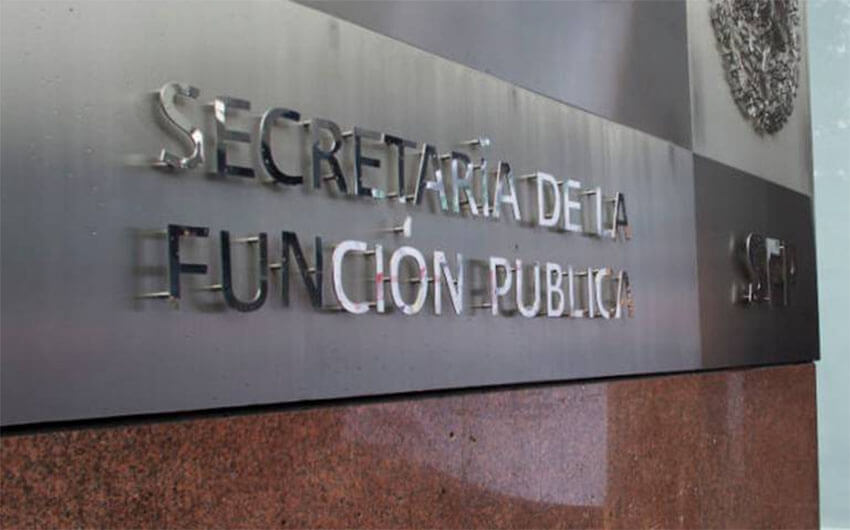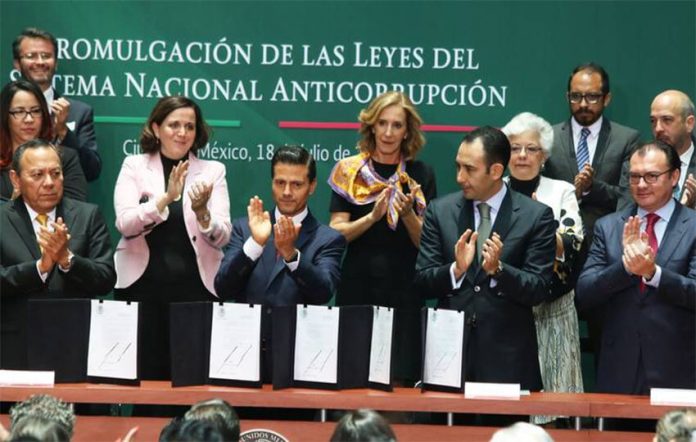Mexico’s score in a regional anti-corruption assessment has improved slightly compared to last year, but “insufficient political will” for the implementation of the country’s legal anti-corruption framework was identified as a problem, even as President López Obrador cites combating corruption as his top priority.
The 2021-22 edition of the Latin America Anti-Corruption Assessment, completed by the New York City Bar Association’s Cyrus R. Vance Center for International Justice, also stated that the fight against corruption is being used for political purposes.
The assessment evaluated legal efforts to prevent and combat corruption in 17 countries, ranking Mexico ninth with a score of 5.64 out of 10. In the first edition of the study last year, it ranked sixth out of eight countries with a slightly lower score of 5.51.
Uruguay ranked first in the latest assessment with a score of 8.36, followed by Chile, Costa Rica, Brazil and Argentina. Venezuela ranked last behind Guatemala and Honduras.
The scores for each nation are based on information obtained via questionnaires completed by lawyers from member firms of the Vance Center’s Lawyers Council for Civil and Economic Rights — which is made up of private practice lawyers from across the Americas — and other members of the legal communities in the countries assessed.
Mexico’s overall score was formulated from its scores of 9.3 out of 10 for anti-corruption legislation, up from 9.05 last year; 4.83 for implementation of that legislation, up from 4; and 3.5 for its anti-corruption authorities, down from 4.
It ranked first among the 17 countries for the strength of its anti-corruption legislation, but 10th for implementation and 12th for anti-corruption authorities.
The report said that Mexico has a comprehensive anti-corruption legal system that was revised and reformulated in 2016-2017 to create a National Anti-Corruption System (SNA).
“According to the majority of the legal community consulted, this legal framework is generally sufficient, although it could be improved,” the report said.
“… Despite the strength of the legal framework,” it continued, “the consulted legal community emphasizes that the main challenges for the applicability of the legal framework include insufficient political will for its implementation (despite being one of the priorities of the current president), inadequate economic and human resources for anticorruption agencies, insufficient judicial independence and/or judicial procuring bodies and inadequate training of public officials.”
The report added that the consequences of some of these challenges are “selective justice and impunity.”

It also said that people in poverty and in vulnerable sectors of the population were identified as those most affected by corruption, “with special mention of women for lack of a gender-sensitive anti-corruption policy and migrants.”
The report identified eight federal authorities with powers to prevent, investigate and punish corruption.
But those authorities – among which are the Ministry of Public Administration (SFP), the Federal Auditor’s Office, the Finance Ministry’s Financial Intelligence Unit and the anti-corruption unit of the federal Attorney General’s Office (FGR) – don’t have the independence needed to effectively fulfill those tasks, according to those consulted.
The institutional capacity of administrative authorities empowered to prevent, investigate, and prosecute acts of corruption is low, as is that of criminal authorities empowered to investigate acts of corruption, the report said.
“The consulted legal community had difficulty identifying the most effective authority,” it added, while the FGR’s anti-corruption unit and the SFP, the government’s internal corruption watchdog, were identified as the least effective.
“The consulted legal community identifies that the anti-corruption fight is being used for political purposes, as the necessary support is not provided to SNA and other entities, on the contrary, they are attacked from the executive branch. In addition, there is a lot of interest in prosecuting corruption cases from past administrations, but not current cases, including the recent case of possible corruption to benefit one of the president’s children,” it said.
The publication of the Latin America Anti-Corruption Assessment comes two months after Transparency International’s 2021 Corruption Perceptions Index was released. The index, touted as “the most widely-used global corruption ranking in the world,” showed that Mexico’s position – 124th out of 180 countries – and score – 31 out of 100 – were unchanged compared to the previous year.
Mexico News Daily
